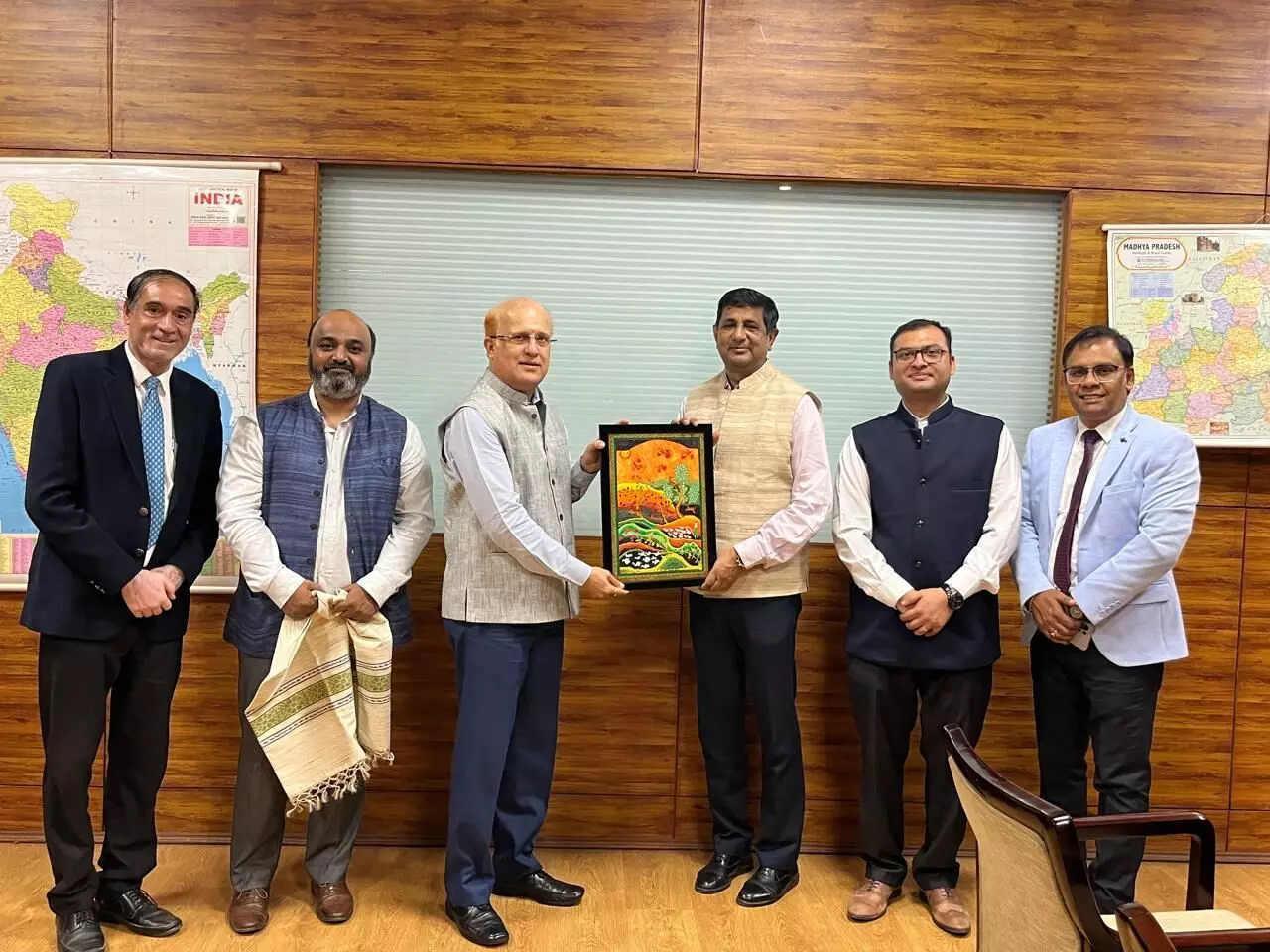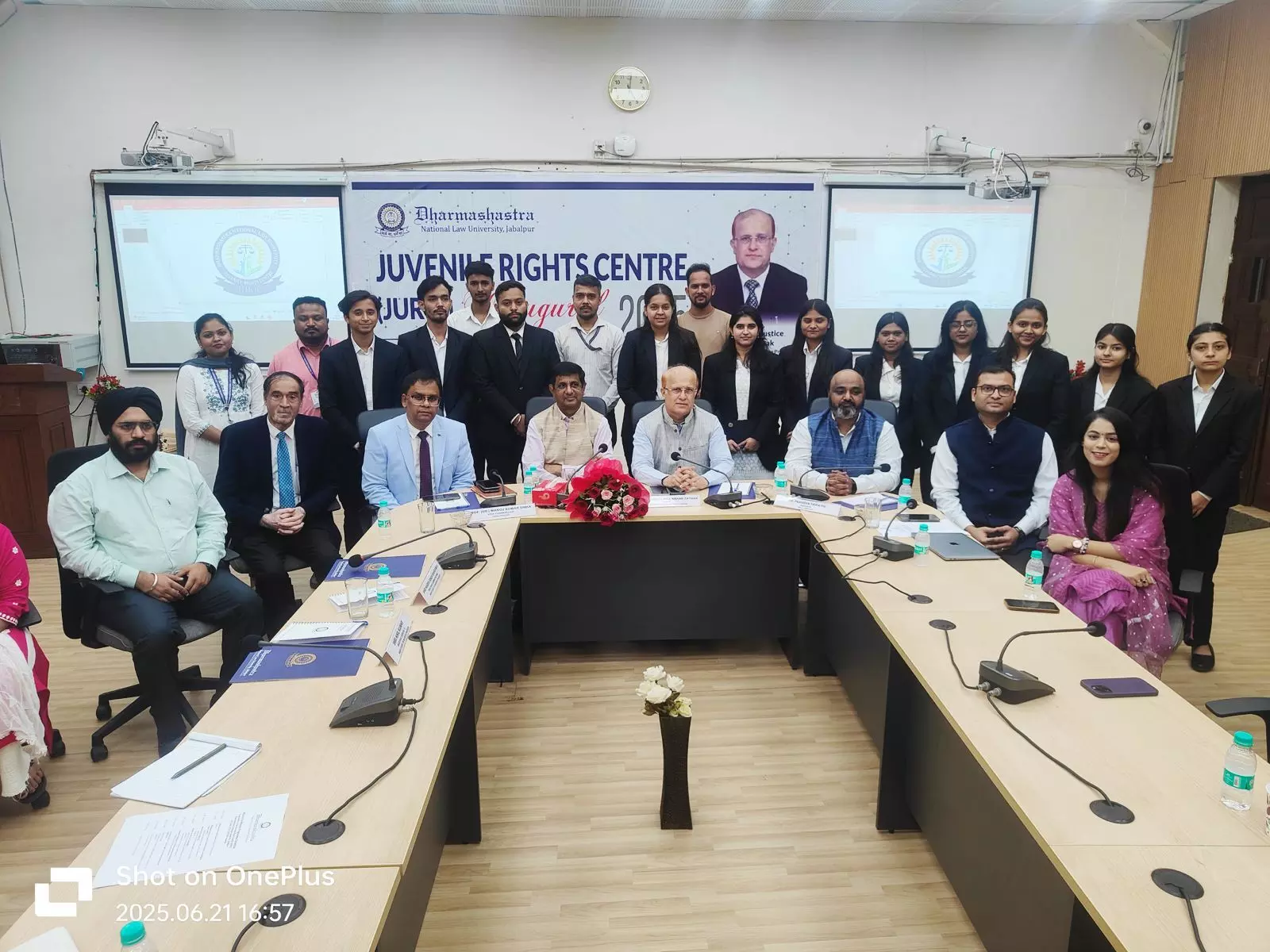
21 June 2025, Jabalpur – Dharmashastra National Law University (DNLU), Jabalpur, marked a major milestone in the field of child protection and juvenile justice with the inauguration of its Centre for Juvenile Rights (JURIC). The event was held with great enthusiasm and solemnity, reinforcing the University’s commitment to advancing juvenile justice reform in India.
The Centre has been established pursuant to a resolution passed by the Juvenile Justice Committee under the esteemed chairmanship of Hon’ble Justice Anand Pathak, whose foresight and leadership were instrumental in bringing this vision to life. The inaugural function was led by Prof. (Dr.) Manoj Kumar Sinha, Hon’ble Vice Chancellor, and Dr. Praveen Tripathi, Registrar, with the formal unveiling conducted by Centre Director Shri Shashank Pathak.
Delivering the keynote address, Hon’ble Justice Anand Pathak emphasized the pressing need for sensitivity and empathy in the judicial treatment of juvenile cases. His Lordship introduced the innovative concept of “Shaurya Didi”, a grassroots initiative empowering women as protectors and mentors for children in vulnerable communities. Justice Pathak highlighted the broader societal role in juvenile protection and welfare.
One of the significant themes of the address was the importance of social audits in monitoring child care institutions and juvenile homes. Justice Pathak advocated for routine and independent audits to ensure transparency, accountability, and the dignity of children in institutional care.

The Centre for Juvenile Rights (JURIC) is envisioned as a dynamic platform for interdisciplinary research, policy formulation, training, and advocacy in juvenile justice and child rights. It will actively collaborate with the judiciary, law enforcement, child rights organizations, and academic institutions to ensure holistic child protection mechanisms.
The inauguration saw the presence of prominent guests including Shri Harsh Singh Bahrawat, Registrar (Administration), and Shri Anil Kumar Sharma, Registrar (J-I), along with child welfare experts, social workers, legal scholars, and students. The gathering reflected a unified resolve to build a more empathetic and just juvenile justice framework in India.